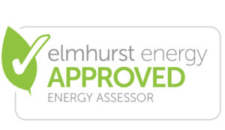Flats/Maisonettes
Houses
GET YOUR EPC IN
48 HOURS
FOR AS LITTLE AS £42
Next Day Energy Performance Certificate available for an additional £10!
Our fully qualified Domestic Energy Assessors are on hand to help. Book an Appointment by clicking your property type below or fill out an EPC Consultation Request. You can also contact us on
020 8203 1281
NEXT DAY EPC
AVAILABLE!
FLATS & MASIONETTES
HOUSES
FREE EPC Consultation
ACCREDITATIONS




Flats/Maisonettes
Houses




What is an EPC?
Energy Performance Certificates were introduced in 2007 and are a legal requirement for a building to be sold, let or constructed. Once obtained, an EPC is valid for 10 years.
The most efficient homes - which should have the lowest fuel bills - are in band A. The Certificate will tell you on a scale of A-G, the energy efficiency of your home along with the potential scale after improvements are made, with 'A' being the most efficient home. Better-rated homes should have less impact through Carbon Dioxide (CO2) emissions, the EPC will show the amount of CO2 emissions produced by that property in tonnes, and will advise on the amount this could be reduced by.
The average property in the UK is in bands D-E for both ratings. The Certificate includes recommendations on ways to improve the home's energy efficiency to save you money and help the environment. EPCs apply also to commercial buildings and are rated only by Carbon Dioxide emission ratings on a scale of A-G.
Do I Already Have an EPC?
If you have the report reference number (RRN) or an address, you can easily retrieve an EPC by going to the appropriate register.
For properties in England and Wales click here
For properties in Scotland click here
For properties in Northern Ireland click here
How do I get an EPC?
If you require an EPC you will need an accredited Energy Assessor to conduct an energy assessment.
The Energy Assessor will need to access all rooms as well as the loft. They are also required to inspect heating systems and controls, take measurements and take photographs of all key data included in the survey. The survey is non-invasive and a visual inspection is all that is required. You can ask the assessor how long he expects to be as the time varies between properties.
Energy Assessors can input this information on site or at home, to produce an Energy Performance Certificate which is lodged to the central register.
What happens during the assessment?
A qualified and accredited Domestic Energy Assessor will visit the property to undertake the Energy Performance Certificate survey.
The Assessor will need access to all rooms in order to accurately measure the property and examine the critical items of the property such as the heating/cooling systems, levels of insulation, the type and material of the window, lighting, etc. Once the survey is finished, the data is uploaded into a software program which then calculates both the current level of energy efficiency.
How long does the assessment take?
The Assessor will take approximately 30 minutes to carryout the survey. Larger family homes can take up to an hour to complete.
The main determining factor is the size of the property but the layout of the property is also a factor. Commercial, or Non-Domestic surveys can take considerably longer with some large commercial buildings taking a full day or even longer. Please note: Time does NOT affect your EPC Certificate cost.
What are the benefits of an EPC?
Reducing your energy bills can be critical. Fuel bills are rising, and we need to save money and help to save the environment. Avoiding carbon emissions is a challenge for every property. A lot of older buildings weren’t built with energy performance in mind. This is where Surveying People can help. We can provide energy reports that will offer guidance and insight to your frequently asked questions.
An EPC certificate will give buyers or tenants a detailed assessment of the current rating of the property. It will also list recommendations and guidelines about how to improve energy efficiency in the future. This means that together we can start to build a more energy efficient environment. Alongside a gas safety certificate and a ECIR, this will ensure that your property is safe and that it appears on the gov.uk EPC Register.
Can my property fail an EPC?
As an EPC is a survey that ranks your property on a scale of A to G – there is no pass or fail.
However, if you are renting out your home, the law requires the EPC to show a minimum rating of E for all new tenancies and – as from April 2020 – all existing tenancies. This means you will need to request access to the property for the EPC to be carried out.
There are no restrictions on selling your property. However, you will need a valid EPC in order to put your property up for sale on the open market.
New EPC Regulations Expected in 2025.
Energy Performance Certificates were introduced in 2007 and are a legal requirement for a building to be sold, let or constructed. Once obtained, an EPC is valid for 10 years.
Taking an E rated property to the minimum C required can cost thousands of pounds and take some time, so it may be worth starting work well before the 2025 deadline. Plus, if you’re looking to invest in a new property, you might want to roll energy efficiency improvements into any renovation costs.
Upgrading your property could also help if you’re planning to sell in the next few years – recent research from Rightmove shows that properties that take their energy rating from a D, E or F rating to a Care currently fetching up to 16% more than similar properties that are less energy efficient.
So, that initial outlay could result in a better return on investment when you do come to sell.




"We value your right to privacy and will never sell your details or use them otherwise than in accordance with the agreement as outlined in our Privacy Policy."
TRUSTED BY

















